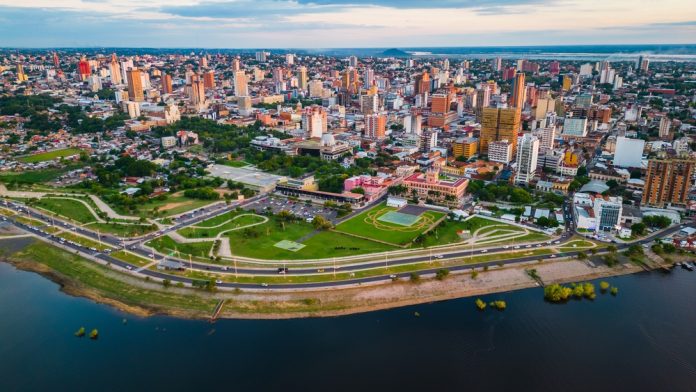Paraguay is set for significant gambling regulatory changes following President Santiago Peña approval for a new bill to “establish a legal regime for the exploitation of games of chance”.
With the backing of President Peña and the Ministry of Finance, the regulatory developments implemented by the bill have been boosted by federal approval from Paraguay’s National Congress in December.
Changes introduced by the bill will enable Paraguay’s government to de-monopolise its gambling sector as measures introduce new competition in the lottery and sports betting sectors, expanding from one to three licensees.
Previously President Peña intervened in the passage of the bill after disruptions to its review had been stalled by the Constitutional Affairs Committee.
The bill also looks to strengthen regulations for online gambling and betting that will allow it to keep pace with technological advancements. Approved games would include casinos, lotteries, online casinos, and sports betting.
It’s a process that has been pursued since 2022, as it was discovered following the fallout of corruption linked to the Conajzar tender for a national sportsbook licence, a contract controversially awarded to the Apost.la brand, without any government oversight
Calls and urgency for the overhaul were led by Lorena Rojas, head of APOJA (Association of Gaming Operators), who in 2022/2023 filed six articles proposing gambling amendments, specifically aiming to end monopolies on gambling activities. Ministers backed APOJA following the controversial Conajzar-managed sports betting tender.
Governance arrangements outlined in the bill propose a shift in regulatory oversight, with Paraguay’s National Gambling Commission (CONAJZAR) being moved from the Ministry of Economy and Finance to the National Directorate of Tax Revenue (DNIT).
The change aims to enhance operational capacity, logistics, and infrastructure for better tax revenue collection and oversight of gambling activities.
Reforms aim to replicate DNIT’s tax collection success by providing Conajzar with expanded resources, including 800 inspectors and improved legal and control functions.
Under the management of CONAJZAR will be strengthened to combat illegal gambling with new powers. Measures include blocking clandestine gambling signals, particularly those from unauthorised online casinos and platforms, through coordination with the national computing centre and Conatel.
Carlos Liseras, president of CONAJZAR welcomed the changes: “We had a long, arduous and heavy job, but we did not have the necessary operational capacity to be able to fulfil our legal obligation. Today, with Law 7438, CONAJZAR depends on the DNIT, which has sufficient operational capacity throughout the national territory, logistics, trained technical personnel, and infrastructure to fully comply with what the law establishes.”














